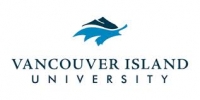






This program places graduates at the intersection of two growing, exciting, and globally significant areas of theory and practice: leisure and sustainability. The program prepares emerging leaders to examine and create solutions which ensure that residents and travelers alike can enjoy recreational experiences, natural and cultural amenities, heritage resources, and adventure as part of their life experiences on a sustainable basis. Students will engage in coursework delivered in a non–traditional, international educational setting where the instructional approach draws upon field experience, classroom instruction, and experiential styles of learning. Two integrated instructional streams are central to the program focus: 1) a set of principles and practices underlying leisure and sustainability; and, 2) an integrated set of research capabilities, innovation, and knowledge mobilization skills necessary to ensure that new knowledge can be effectively transformed into impact. There is also a required thesis component wherein students will demonstrate a mastery of knowledge mobilization approaches (including, but not limited to, research skills). During completion of the program, students will: acquire a broad interdisciplinary knowledge of concepts, models and issues relating to the field of leisure services; analyze sustainability issues by integrating social, environmental and economic perspectives; develop and critique policies and practices that advance sustainability goals; apply strategies to influence change and innovation at the community, regional, national and international levels; conduct applied research on specific leisure, innovation, and sustainability topics; develop the capacity to actively engage in a variety of knowledge creation and mobilization approaches and strategies; engage with diverse stakeholders on complex leisure and sustainability issues; and, formulate a personal and professional commitment to strategic and innovative leadership practices in sustainable leisure services.
| Number | Duration |
|---|---|
| 2 | year |
Graduates can pursue careers in government, private sector, non–governmental organizations, non–profit organizations, regulatory agencies, higher education, and consultancies. The position titles for the careers in this field include sustainability officers, analysts, managers, coordinators, and directors. Graduates will have strong communication skills, analytical ability, critical thinking and problem–solving ability, along with a customer orientation. The curriculum strongly supports individuals involved in planning, policy development, research, administration, and the teaching of those subjects in post–secondary institutions.